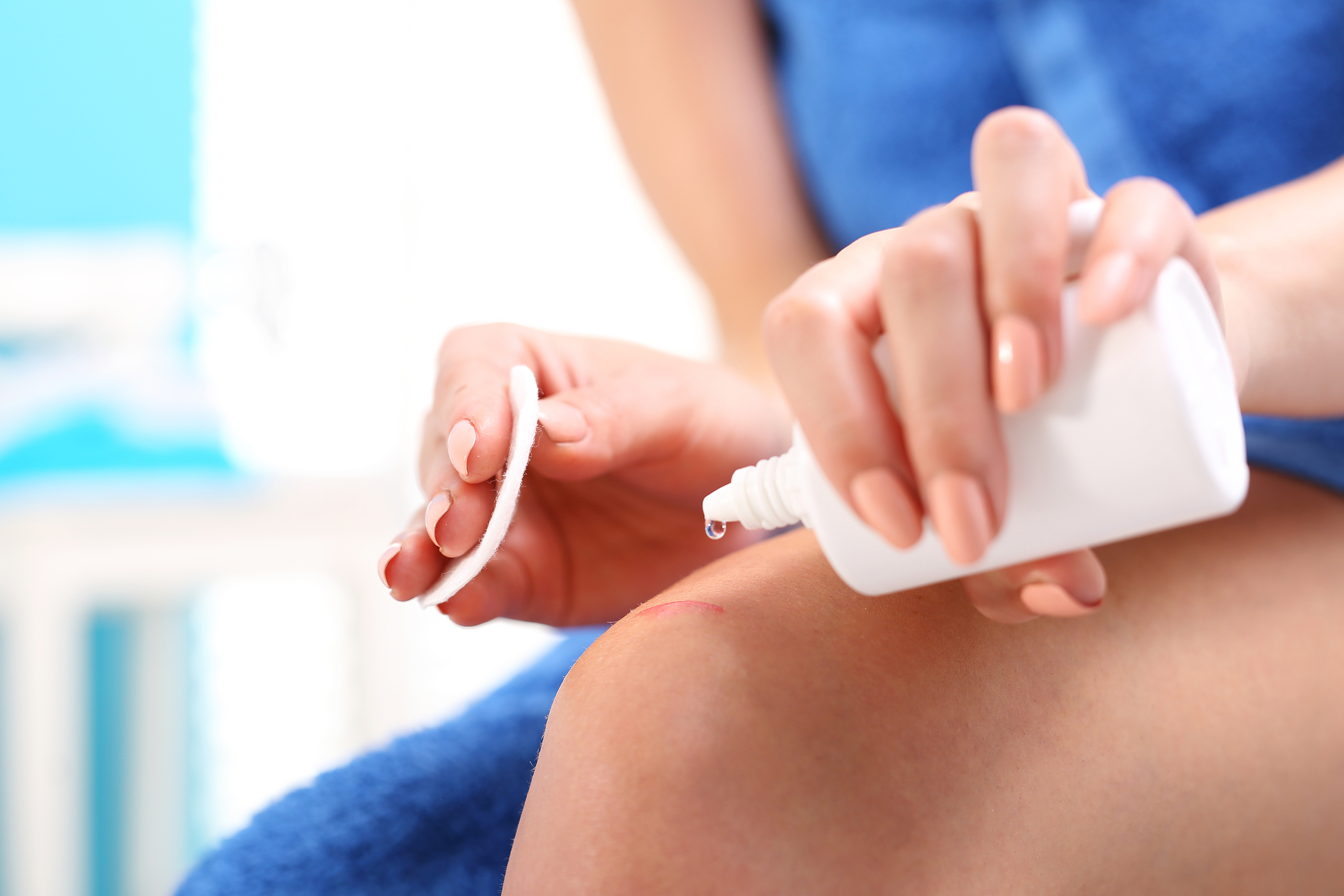We all have had some kind of cuts or scrapes in our lifetime at the playground, home, office or during the change of seasons. These skin bruises should not be ignored as minor health issues and can turn fatal if not treated with the correct care.
Our skin is very sensitive and breaks down when there is a cut, scrape or a bruise causing a dangerous risk of germs entering into our body. The best way to avoid the dangers of harmful germs is to treat the wound with an antiseptic skin cleanser.
What is an Antiseptic Skin Cleanser?
Frequently used in hospitals and kept in the first aid boxes, an antiseptic, often referred to as skin disinfectants is a wound cleaning solution that stops or slows down the growth of microorganisms to reduce the risk of infections further causing any damage. There are different types of Antiseptics used in medical settings and available OTC (over the counter) for home use. These include hand rubs and hand washes.
Ever wondered what do these cuts and wounds treatment antiseptic cleansers contain?
Cuts and wounds treatment antiseptic skin cleansers contain different amounts of solutions, depending upon the purpose of which they are used.
- Most of the commonly available antiseptic cleansers are alcohol-based hand rubs (ABH) and are used as standard hand antisepsis to curtail the growth of microbes that may cause infection.
- Another common ingredient of a wound cleaning medicine is povidone-iodine (PVI) scrub solution.
- 7.5% or 4% PVI scrub solution is used as an antiseptic cleanser of contaminated wounds, healthy skin as antiseptic hand wash and surgical hand washes.
How should I apply an Antiseptic cleanser solution?
Applying a first aid for the wounds? An antiseptic cleaning solution should be applied with utmost care as some injury cleaning liquids must be diluted before use due to their varying alcohol content which may cause harm on direct application. If you apply an alcohol-based antiseptic skin cleanser directly to an open wound, chances are your wound may not get healed or there will be a considerable delay in healing.
Medical practitioners suggest that if you are going to use an antiseptic cleanser, use it only once as a wound cleaning liquid and never chronically. When you clean the wound again, it is best to use water. Medical practitioners advise against rubbing alcohol or peroxide to clean an open wound as it may do more harm than any good.
What you must know before applying an Antiseptic skin cleanser?
- Medical practitioners’ advice to make a note of the antiseptic cleanser you use as first aid and discuss it with your health care provider. This helps them to diagnose the wound at a later stage.
- Protect your clothing and fabrics from an antiseptic cleanser staining.
- Watch some online tutorials on how you can clean your wound with a diluted antiseptic solution before you actually apply one.
- Some wound cleaning solutions many for highly inflammable. Be alert not to use them near an open flame.
- An antiseptic wash for skin should be kept out of the reach of children as they may cause dangerous harm if swallowed. Call a doctor right away if they are any instances if the antiseptic skin cleanser is swallowed.
When to seek medical advice?
You must be questioning whether you should take self-medication to heal up minor cuts and injuries? Medical advisors say No. In cases when the cut is deep and the bruises are dark you must seek the advice of a medical expert as soon as you can.
To book an appointment with the best General Practitioner around you, download the Gigadocs app. Through Gigadocs, you can manage your complete healthcare in one app. You can book a doctor’s appointment, save your prescriptions in a digital format, and keep a tab on your vitals sharing them live with your medical practitioners.
To know more how can Gigadocs help you in maintaining perfectly healthy well-being with advanced healthcare solutions, contact Gigadocs today at info@gigadocs.com




